The Center for Hellenic Studies would like to extend a warm welcome to our Spring 2016 Fellows! Please allow us to introduce them:
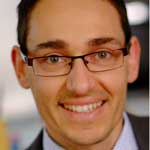 Cédric Brélaz (PhD University of Lausanne, Dr. habil. École Pratique des Hautes Études, Paris) is an Associate Professor of Ancient Greek History at the University of Strasbourg, France. He was Member of the Swiss Institute in Rome, Foreign Member of the French School of Archaeology at Athens and Visiting Research Fellow at the Centre for the Study of Ancient Documents, Oxford. His research focuses on Greek political institutions in the Hellenistic and Imperial periods, on Roman provincial administration in the Eastern Mediterranean and on Greek and Latin epigraphy. His publications include the books La sécurité publique en Asie Mineure sous le Principat (2005) and Corpus des inscriptions grecques et latines de Philippes, II.1. La vie publique de la colonie romaine (2014). He has co-edited volumes on public order in the ancient world, on ancient Greek warfare and on Roman colonization. His project at the CHS will deal with Greek political mentalities and practice under Roman rule and will focus on the changes in Greek political culture in the Imperial period.
Cédric Brélaz (PhD University of Lausanne, Dr. habil. École Pratique des Hautes Études, Paris) is an Associate Professor of Ancient Greek History at the University of Strasbourg, France. He was Member of the Swiss Institute in Rome, Foreign Member of the French School of Archaeology at Athens and Visiting Research Fellow at the Centre for the Study of Ancient Documents, Oxford. His research focuses on Greek political institutions in the Hellenistic and Imperial periods, on Roman provincial administration in the Eastern Mediterranean and on Greek and Latin epigraphy. His publications include the books La sécurité publique en Asie Mineure sous le Principat (2005) and Corpus des inscriptions grecques et latines de Philippes, II.1. La vie publique de la colonie romaine (2014). He has co-edited volumes on public order in the ancient world, on ancient Greek warfare and on Roman colonization. His project at the CHS will deal with Greek political mentalities and practice under Roman rule and will focus on the changes in Greek political culture in the Imperial period.
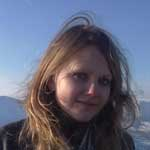 Naomi Carless Unwin (PhD University College London) is a postdoctoral researcher, working on the history, epigraphy and archaeology of Karia in south western Anatolia. After completing a BA at Oxford University in 2006, she moved to University College London, where she completed her MA in Ancient History in 2008 and her PhD in 2013. She was employed in the 2013/2014 academic year as a Fernand Braudel IFER-FMSH post-doctoral fellow, affiliated to the Labex Resmed in Paris, where her project was focused on religion and society in Karia. She has subsequently continued this project as a Senior Fellow at the Research Center for Anatolian Civilizations at Koç University in Istanbul (2014/2015), and the CHS/DAI fellowship for 2015/2016 will be used to develop this research into a monograph. She has participated for a number of years in the archaeological excavations at Labraunda, where she works primarily on the epigraphy of the site.
Naomi Carless Unwin (PhD University College London) is a postdoctoral researcher, working on the history, epigraphy and archaeology of Karia in south western Anatolia. After completing a BA at Oxford University in 2006, she moved to University College London, where she completed her MA in Ancient History in 2008 and her PhD in 2013. She was employed in the 2013/2014 academic year as a Fernand Braudel IFER-FMSH post-doctoral fellow, affiliated to the Labex Resmed in Paris, where her project was focused on religion and society in Karia. She has subsequently continued this project as a Senior Fellow at the Research Center for Anatolian Civilizations at Koç University in Istanbul (2014/2015), and the CHS/DAI fellowship for 2015/2016 will be used to develop this research into a monograph. She has participated for a number of years in the archaeological excavations at Labraunda, where she works primarily on the epigraphy of the site.
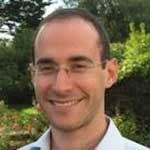 Paul J. Kosmin was born and raised in London. Having read Ancient and Modern History at Balliol College, Oxford (BA 2005), he moved to Harvard University for his PhD (2012). His first book, The Land of the Elephant Kings: Space, Territory, and Ideology in the Seleucid Empire (HUP, 2014), examines the relationship between the kings of the Seleucid dynasty and the landscape, from Bactria to Thrace, over which they ruled. More generally, Paul is interested in Hellenistic kingship and imperialism, ancient ethnography, interactions between the Greek and Near Eastern worlds, and Greek epigraphy. Current projects include a study of indigenous resistance to Hellenistic imperialism and an investigation of the role of magical rituals in city-state politics.
Paul J. Kosmin was born and raised in London. Having read Ancient and Modern History at Balliol College, Oxford (BA 2005), he moved to Harvard University for his PhD (2012). His first book, The Land of the Elephant Kings: Space, Territory, and Ideology in the Seleucid Empire (HUP, 2014), examines the relationship between the kings of the Seleucid dynasty and the landscape, from Bactria to Thrace, over which they ruled. More generally, Paul is interested in Hellenistic kingship and imperialism, ancient ethnography, interactions between the Greek and Near Eastern worlds, and Greek epigraphy. Current projects include a study of indigenous resistance to Hellenistic imperialism and an investigation of the role of magical rituals in city-state politics.
 Stavros Kouloumentas (PhD University of Cambridge) is a Fernard Braudel postdoctoral fellow at the Centre Léon Robin in Paris IV-Sorbonne. He has been a part-time lecturer at the University of Patras (2011) and an Alexander von Humboldt research fellow at the Humboldt University of Berlin (2012-5). He is currently completing an edition of the texts pertaining to Alcmaeon of Croton, along with introductory notes and commentary. His main interests lie in the interaction between philosophy and medicine, the transmission of philosophical texts in antiquity, and the emergence of rational thinking in ancient Greece. His research at CHS will deal with the sophistic movement and the criticism of traditional religion.
Stavros Kouloumentas (PhD University of Cambridge) is a Fernard Braudel postdoctoral fellow at the Centre Léon Robin in Paris IV-Sorbonne. He has been a part-time lecturer at the University of Patras (2011) and an Alexander von Humboldt research fellow at the Humboldt University of Berlin (2012-5). He is currently completing an edition of the texts pertaining to Alcmaeon of Croton, along with introductory notes and commentary. His main interests lie in the interaction between philosophy and medicine, the transmission of philosophical texts in antiquity, and the emergence of rational thinking in ancient Greece. His research at CHS will deal with the sophistic movement and the criticism of traditional religion.
 Christopher Moore (PhD University of Minnesota) is Assistant Professor of Philosophy and Classics at The Pennsylvania State University. His dissertation, “Socratic Persuasion,” addressed Socrates’ self-presentation in the language of democracy, oratory, and seduction, and argued for an analysis of persuasion that weakens the charges against it of epistemic poverty. He has published a range of articles on the Socratic circle, the Platonic dialogues, and ancient Greek moral vocabulary. A book, Socrates and Self-Knowledge, will come out with Cambridge UP in 2015; it describes the relationship between the Delphic gnôthi sauton and Socratic philosophy. He is now finishing an edited collection on the Socratic literature from the fifth-century BC through late antiquity and co-authoring a translation of and commentary on Plato’s Charmides. His CHS book project describes the coining of and earliest debates about the word philosophos.
Christopher Moore (PhD University of Minnesota) is Assistant Professor of Philosophy and Classics at The Pennsylvania State University. His dissertation, “Socratic Persuasion,” addressed Socrates’ self-presentation in the language of democracy, oratory, and seduction, and argued for an analysis of persuasion that weakens the charges against it of epistemic poverty. He has published a range of articles on the Socratic circle, the Platonic dialogues, and ancient Greek moral vocabulary. A book, Socrates and Self-Knowledge, will come out with Cambridge UP in 2015; it describes the relationship between the Delphic gnôthi sauton and Socratic philosophy. He is now finishing an edited collection on the Socratic literature from the fifth-century BC through late antiquity and co-authoring a translation of and commentary on Plato’s Charmides. His CHS book project describes the coining of and earliest debates about the word philosophos.
 Anne-Sophie Noel (PhD University of Lyon) graduated from the École Normale Supérieure of Lyon, and has completed her PhD thesis at the University of Lyon 3 in 2012. She is currently an associate researcher at HiSoMA (Histoires et Sources des Mondes Antiques, UMR 5189, Lyon). She has taught on a wide range of subjects, in the field of Classics and French literature, at secondary and academic levels (University of Lyon 3, Paris X and Exeter). Her first research interests lied in Greek and Roman drama, particularly in ancient performance of Greek tragedy and comedy: her thesis was a comprehensive study of the theatrical objects in Aeschylus, Sophocles and Euripides’ dramas, which also questioned modern reception and modern stagings of the objects of ancient tragedy. She is also part of a teamwork devoted to the translation and commentary of Pollux’ Onomasticon, book IV (Paris) and she collaborates to a project of translation and commentary of the ancient sources about the spectators in the Antiquity (GDR THEATHRE, Paris). While at the CHS, Anne-Sophie will be developing her new research project on the expression of feelings for objects in Ancient Greece, at the crossroads of literature, cultural history, material culture and anthropology. A performer and amateur stage director, she produced several shows of ancient Greek tragedies in the past years, and is also one of the editors of the French online review Agôn, dedicated to the performing arts.
Anne-Sophie Noel (PhD University of Lyon) graduated from the École Normale Supérieure of Lyon, and has completed her PhD thesis at the University of Lyon 3 in 2012. She is currently an associate researcher at HiSoMA (Histoires et Sources des Mondes Antiques, UMR 5189, Lyon). She has taught on a wide range of subjects, in the field of Classics and French literature, at secondary and academic levels (University of Lyon 3, Paris X and Exeter). Her first research interests lied in Greek and Roman drama, particularly in ancient performance of Greek tragedy and comedy: her thesis was a comprehensive study of the theatrical objects in Aeschylus, Sophocles and Euripides’ dramas, which also questioned modern reception and modern stagings of the objects of ancient tragedy. She is also part of a teamwork devoted to the translation and commentary of Pollux’ Onomasticon, book IV (Paris) and she collaborates to a project of translation and commentary of the ancient sources about the spectators in the Antiquity (GDR THEATHRE, Paris). While at the CHS, Anne-Sophie will be developing her new research project on the expression of feelings for objects in Ancient Greece, at the crossroads of literature, cultural history, material culture and anthropology. A performer and amateur stage director, she produced several shows of ancient Greek tragedies in the past years, and is also one of the editors of the French online review Agôn, dedicated to the performing arts.
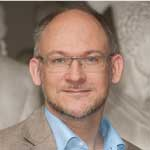 Sven Schipporeit (PhD Heidelberg University) teaches at the University of Vienna. A Classical Archaeologist, his main focus lies on the interaction between religion, imagery, architecture, urban development and society from archaic Greece to early imperial Rome. This research encompasses a doctoral thesis on “Kulte und Heiligtümer der Demeter und Kore in Ionien” released in 2013 as vol. 16 in the Byzas series including a close look on the Eleusinian mysteries, surveys on cult meals and chariots for the Thesaurus Cultus et Rituum Antiquorum, on votive practice and images, on religion and politics in Ionia and Sicily, and on several topics centered around the Roman Triumph, carried out as Research Fellow in Heidelberg and as Assistant Professor in Vienna at the Departments of Classical Archaeology. As a CHS and DAI fellow he will work on the urban fabric and cultic constitution of synoicized Poleis in late classical and early hellenistic times: Rhodes will serve as a first case study, where the citizens promoted the minor god Helios to patron of the unified city-state, in place of Athena, the widely recognized poliadic goddess of their old three cities.
Sven Schipporeit (PhD Heidelberg University) teaches at the University of Vienna. A Classical Archaeologist, his main focus lies on the interaction between religion, imagery, architecture, urban development and society from archaic Greece to early imperial Rome. This research encompasses a doctoral thesis on “Kulte und Heiligtümer der Demeter und Kore in Ionien” released in 2013 as vol. 16 in the Byzas series including a close look on the Eleusinian mysteries, surveys on cult meals and chariots for the Thesaurus Cultus et Rituum Antiquorum, on votive practice and images, on religion and politics in Ionia and Sicily, and on several topics centered around the Roman Triumph, carried out as Research Fellow in Heidelberg and as Assistant Professor in Vienna at the Departments of Classical Archaeology. As a CHS and DAI fellow he will work on the urban fabric and cultic constitution of synoicized Poleis in late classical and early hellenistic times: Rhodes will serve as a first case study, where the citizens promoted the minor god Helios to patron of the unified city-state, in place of Athena, the widely recognized poliadic goddess of their old three cities.
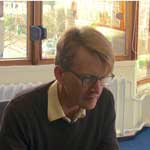 Neel Smith is an associate professor in the Department of Classics at the College of the Holy Cross where he teaches a wide range of courses in ancient languages, archaeology and ancient science. For more than twenty-five years, he has explored the implications of new information technologies for humanists, including work on the Perseus Project, and for the past ten years as a co-architect of the Homer Multitext project. As faculty advisor to the Holy Cross Manuscripts, Inscriptions and Documents Club since its foundation in 2012, he has been a frequent co-author with undergraduate colleagues on topics growing out of the club’s research.
Neel Smith is an associate professor in the Department of Classics at the College of the Holy Cross where he teaches a wide range of courses in ancient languages, archaeology and ancient science. For more than twenty-five years, he has explored the implications of new information technologies for humanists, including work on the Perseus Project, and for the past ten years as a co-architect of the Homer Multitext project. As faculty advisor to the Holy Cross Manuscripts, Inscriptions and Documents Club since its foundation in 2012, he has been a frequent co-author with undergraduate colleagues on topics growing out of the club’s research.
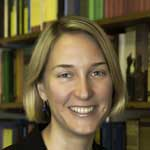 Caroline Stark (PhD Yale) is Assistant Professor of Classics at Howard University. Her research interests include ancient cosmology, anthropology, ethnography, and the reception of classical antiquity in later periods and other cultures, especially Medieval and Renaissance Europe/Mediterranean and contemporary African, Caribbean, and African-American Literature. For recent publications, see her page on academia.edu. At the CHS, she will be continuing her research on ancient stories of creation and their reception in the intellectual and cultural history of the fifteenth and sixteenth centuries, and she will be creating on an online resource for Black Classicism and receptions of the ancient Mediterranean in Black World Studies.
Caroline Stark (PhD Yale) is Assistant Professor of Classics at Howard University. Her research interests include ancient cosmology, anthropology, ethnography, and the reception of classical antiquity in later periods and other cultures, especially Medieval and Renaissance Europe/Mediterranean and contemporary African, Caribbean, and African-American Literature. For recent publications, see her page on academia.edu. At the CHS, she will be continuing her research on ancient stories of creation and their reception in the intellectual and cultural history of the fifteenth and sixteenth centuries, and she will be creating on an online resource for Black Classicism and receptions of the ancient Mediterranean in Black World Studies.
Anyone wishing to explore fellowship opportunities is encouraged to visit the CHS website to find out more. Information about fellowship opportunities for the 2017-18 academic year will be available in August 2016. All fellows publish some aspect of their research in the CHS Research Bulletin, which is updated biannually with current approaches to the Classical world.
-
Fellowships
- Fellowships in Hellenic Studies
- Early Career Fellowships
- Summer Fellowships
- CHS-IHR Joint Fellowship
- Current Residential Fellows
- Previous Fellows Previous Fellows – Chronological Lists
